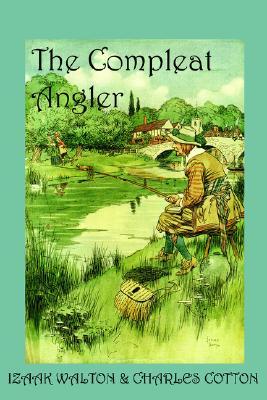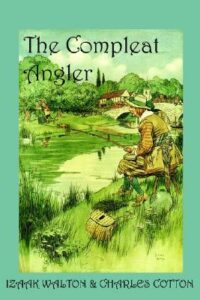Chapter V — The Compleat Angler
byChapter V – The Compleat Angler welcomes readers into an evening scene by the riverside, where the delight of angling blends seamlessly with companionship. Piscator introduces Venator to Peter, while Coridon, a cheerful countryman, joins the group, representing the warmth and inclusivity of those who share a love for fishing. The conversation, filled with kindness and laughter, sets a mood of unity, where newcomers are embraced, and old friends are greeted with genuine joy. They gather not only to share their catch but also to enjoy a meal and make music together, turning an ordinary day into a meaningful celebration of rural life. The air is thick with the scent of roasted trout, a symbol of both nature’s generosity and the reward of patient effort.
As they prepare for supper, their shared excitement isn’t limited to food. The men exchange stories, songs, and plans to guide Venator into the world of angling. Piscator and Peter agree to pass on the wisdom and skills required to master fishing, treating this mentorship as both a duty and a pleasure. It’s not only about catching fish; it’s about learning patience, observation, and a love for the rhythm of nature. In this moment, the bond between teacher and student becomes sacred, supported by shared values and the desire to preserve tradition. Venator, though new to the practice, is welcomed as an equal among men who understand that joy grows greater when shared.
The shift from teaching to singing reveals another layer of their camaraderie. Coridon sings with the ease of someone deeply rooted in the countryside, his verses honoring the unhurried pace and satisfaction of rural living. His song reflects a life uncluttered by ambition, rich instead with fresh air, honest work, and the companionship of like-minded souls. In return, Piscator promises to offer his own melody, one that praises the tranquility and virtue found in the angler’s life. Through song, they express a shared truth: the river and the land offer more than food—they offer peace and belonging. These moments blur the line between sport and lifestyle, reminding readers that fishing, at its heart, is a way of seeing the world.
This chapter speaks to something universal—the human need for connection, whether to nature or one another. As the group eats and sings, they reaffirm the values often lost in more hurried lives: simplicity, respect for nature, and joy in modest pleasures. There is no hierarchy here, only a common table and shared stories. It’s not only the trout that nourishes them but also the laughter and music that echo between bites. The riverbank becomes a sanctuary, not because of solitude, but because of the fellowship it nurtures. Each man contributes something: a tale, a tune, or just a listening ear.
Their songs, especially Coridon’s, do more than entertain—they reflect an ethos that runs through the entire book. Living close to the land means recognizing its patterns and taking joy in its gifts. It means working with nature, not against it. The trout on their plates becomes a symbol of nature’s quiet abundance, and their songs serve as thanksgiving, filled with reverence and humility. By the time the last verse fades, it’s clear that angling is more than a pastime for these men—it’s a lens through which they view friendship, purpose, and the world itself. Through this lens, even a simple meal becomes a ritual.
The closing moments of the chapter capture a mood of gentle anticipation. The promise of another day by the river, another meal, another lesson shared, binds them. It suggests that the journey of an angler never truly ends but unfolds in cycles—fish caught, knowledge passed, songs sung again. This ongoing rhythm mirrors the flow of the river itself: always moving, yet familiar and comforting in its return. The harmony between the natural world and human experience, so vividly depicted in this chapter, reminds readers that fulfillment often lies in what is most simple and shared.


